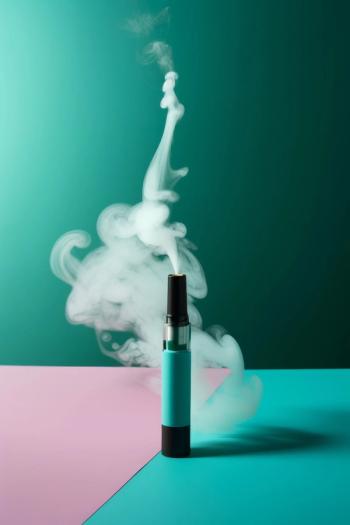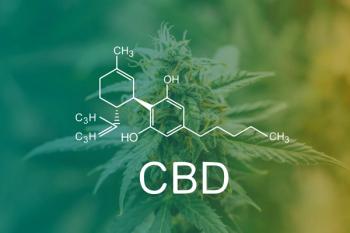
Pharmaceutical-Grade CBD: Elevating the Industry to the Next Level

The cannabidiol (CBD) market reached a saturation level in recent years with products popping up around every corner—from the local gas station to the neighborhood market and more. How can consumers know which of those products are safe and reliably labeled? It is an unfortunate fact that there are bad products on the market, some that have no CBD at all despite label claims. Despite these bad actors, many companies are striving to do better and even set higher standards for the industry. For instance, Vantage Hemp Co. has made it their mission to go beyond current state requirements and produce pharmaceutical-grade CBD. Here, Deepank Utkhede, Chief Operating Officer at Vantage Hemp Co., discusses his role with the company and their goals to elevate this market to create a safe place for consumers and manufacturers.
Can you tell us about your background and how you got involved in the cannabis/hemp industry?
Deepank Utkhede: Certainly. I spent more than 20 years in pharmaceutical development and manufacturing, focusing on the development and production of various products, including injectables, topicals, and oral medications. Throughout my career, I have gained extensive knowledge and expertise in the areas of process development, quality control, and regulatory compliance.
My background in the pharmaceutical industry has been instrumental in my involvement with Vantage Hemp Co., as I played a large role in developing the company's 62,000-square-foot manufacturing facilities located in Greeley, Colorado. I also helped design the robust and commercially scalable hemp extraction and finished product manufacturing processes and assisted in the attainment of the company's International Council for Harmonisation of Technical Requirements for Pharmaceuticals for Human Use (ICH) Q7 and World Health Organization (WHO) good manufacturing practices (GMP) certifications, which are internationally recognized standards for pharmaceutical quality control.
Please tell us about the work you and your company are doing to create pharmaceutical-grade cannabidiol (CBD).
Utkhede: At Vantage Hemp, our team of experts has developed an advanced process that utilizes large quantities of certified hemp biomass, large-scale extraction equipment, and state-of-the-art technology to produce high-quality CBD full-spectrum oil, distillate, and isolate.
Our process starts with sourcing hemp biomass and working closely with certified growers. Once the hemp is harvested, it is processed in our large-scale extraction facilities, which are designed to handle high-volume production while maintaining strict quality standards.
Our partnerships with pharmaceutical and consumer packaged goods (CPG) business operations have given us proven market performance in CBD extraction, commercial production, and packaging processes.
For anyone not familiar with the medical space, why is the distinction of pharmaceutical-grade CBD important to note?
Utkhede: Pharmaceutical-grade CBD is produced under strict guidelines for purity, safety, and efficacy, in a setting that meets the compliance standards of the pharmaceutical industry. These standards include WHO GMP, US Food and Drug Administration (FDA) 21 Code of Federal Regulations (CFR) 210/211, and ICHQ7—all which Vantage Hemp operates by. This level of quality control, rigorous testing, and regulatory oversight are what sets pharmaceutical-grade CBD apart.
Many other groups shy away from regulatory bodies or rules that are not required by law in the hemp and cannabis industries, so why was it important to you to be leaders regarding compliance and safety protocols for your products?
Utkhede: At Vantage Hemp, we strongly believe that engagement with regulatory bodies and a commitment to the most stringent protocols are essential steps in facilitating the development of safe and effective CBD products that the end consumer can have confidence in. By prioritizing consistency, quality, and cGMP compliance, we are working to pave the way for greater regulatory clarity in the industry.
It also makes good business sense. By being leaders in these areas, we establish ourselves as a transparent and reliable partner to both clients and regulatory bodies. This, in turn, can help build trust with consumers, which is crucial in a rapidly evolving and often confusing market.
One of the ways we demonstrate our commitment is through our Drug Master File (DMF) submissions. These submissions serve as a clear promise of support to our clients through all phases of drug development and showcase that we can confidently provide the FDA with details on our facilities, processes, and materials used in the manufacturing, processing, packaging, and storing of our ingredients.
What was the process like to get to the point of submission for two Drug Master Files (DMFs) to the FDA for your CBD isolate and distillate (1)?
Utkhede: This was a complex, time-consuming, and expensive process, the key to which was validating various steps in the manufacturing process. Validation is the act of documenting objective evidence that offers a high level of assurance that a specific cleanroom process will consistently deliver products that meet pre-determined specifications.
However, the first thing is to complete process development for each manufacturing step to understand the final key process parameters and how changes in these parameters impact the final product. The final process parameters are then validated as producing an acceptable product by performing three consecutive runs and demonstrating that the final product from these runs meets the pre-determined quality specifications. These validation batches of product must also be placed on stability to confirm the long-term stability of the material at various storage conditions.
Another part of validation includes process equipment, which must receive confirmation that it is installed properly, known as installation qualification (IQ), and operates as required, known as operational qualification (OQ). IQ and OQ of all process equipment must be completed before the process can be validated.
All in all, the entire process took more than two years to complete.
How long will take to hear back about the DMFs? What are the next steps if they are approved by the FDA?
Utkhede: It is important to note that the review process for DMFs is initiated by a pharmaceutical drug company and not the FDA. The FDA does not proactively review DMFs; rather, the review process begins when a pharmaceutical company references a DMF in their Investigational New Drug (IND) or New Drug Application (NDA) via a Letter of Authorization (LOA) provided by the DMF holder, which would be Vantage Hemp.
Once the LOA is submitted, the FDA will start the review and approval process. The timeline for this process can vary depending on several factors such as the complexity of the drug product. However, the FDA has committed to reviewing all DMFs within a target timeframe of 60 days.
If the DMF is approved by the FDA, the pharmaceutical company that referenced it in their IND application will be able to use the information in the DMF to support their own submission which can potentially streamline the review process and lead to a faster approval timeline for their drug product.
Are your products currently involved in any clinical studies?
Utkhede: Yes, Vantage’s CBD isolates are currently being used in a number of clinical trials examining various medical conditions.
Is there anything else you’d like to add?
Utkhede: Consumers must demand uncompromising quality and refuse to settle for less. They should also expect safety and accuracy in the products available to them in the market. Vantage Hemp is dedicated to producing high-quality hemp-derived CBD under existing pharmaceutical regulatory frameworks and processes to provide consumer confidence in our products.
Reference
- Utkhede, D. Vantage Hemp Co. Submits Drug Master File for CBD Isolate to the U.S. Food & Drug Administration
https://www.vantagehemp.com/2023/04/03/vantage-hemp-co-submits-drug-master-file-for-cbd-isolate-to-the-u-s-food-drug-administration/ .
Newsletter
Unlock the latest breakthroughs in cannabis science—subscribe now to get expert insights, research, and industry updates delivered to your inbox.




